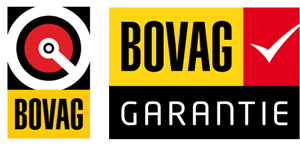Modern cars are equipped with a computer (ECU), also called the controller. This control unit is the brain of the engine. For example, it controls the ignition timing, the amount of injected fuel, injection duration, torque limit, turbo pressure, etc. The computer is equipped with a memory where “parameters” related to the control are stored. By means of a software adjustment, a power gain of 20 to 40% can be achieved with turbo engines. This is reflected in a clearly noticeable increase in torque (pulling force) and an increase in top speed. With naturally aspirated engines (without turbo) the power gain is much lower, about 6 to 8%.
Why does the manufacturer not use this margin itself?
You may wonder why the manufacturer does not optimize the software. The manufacturer builds cars that are used in a large number of countries. The software is adjusted by the manufacturer with a large margin. This margin is therefore necessary in certain countries due to various factors. Consider, for example, extreme weather conditions, poor maintenance intervals, low-quality fuels and oil, etc. In the Netherlands, we are in ideal conditions in this respect and the optimization can therefore take place without danger to the engine.
How is the consumption after chip tuning?
While maintaining the same driving style as before the engine chipping, by optimizing all settings, especially with turbo diesel and regular diesel engines, a lower consumption can be achieved in practice, averaging between 5-10%. There are some customers who have let us know that they have even achieved a lower consumption of up to 15% with a relaxed driving style! Petrol engines will not consume more, but in practice no less.
Advice after chip tuning
To maintain optimal enjoyment of your vehicle after engine chipping, you should gradually warm up the engine and let it cool down properly after a long journey. Of course, this also applies to original cars. It is very important to have timely maintenance and repairs carried out in the event of defects. Of course with the use of the correct engine oil and parts prescribed by the manufacturer. For petrol engines, we recommend filling up with petrol with an octane rating of 98. All combustion engines perform best when using Shell V-Power, Total Excellium or BP Ultimate. It is advisable to follow our recommendations.


